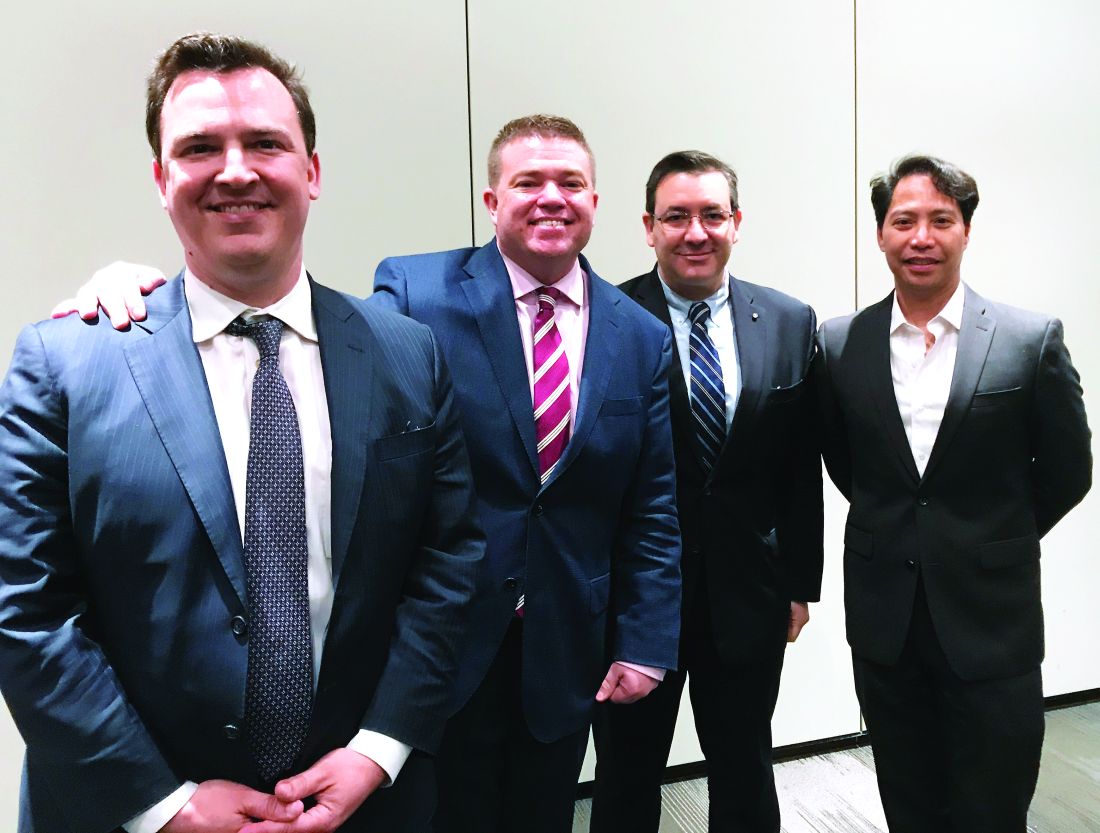NEW YORK – The risk curve of societal harm from marijuana when graphed from a policy of complete prohibition to one of unregulated access is U shaped, according to a panel of experts who participated in a workshop on the harms and benefits of cannabis at the annual meeting of the American Psychiatric Association.
Based on more than 80 years of experience, it is clear that prohibition supports criminal activity but does not eliminate use, said Jason Hershberger, MD, chair of the department of psychiatry at Brookdale University Hospital Medical Center, New York. With progressive degrees of decriminalization, the harms to society associated with criminal distribution and the criminalization of use decreases, but they are replaced with increasing societal risks imposed by the availability of an intoxicating substance.
Theoretically, one argument is that the inflection point occurs where cannabis has been decriminalized for medical indications but prohibited for recreational use. But this is a tenuous position. Clinicians, including psychiatrists, might support the use of cannabis to reduce stress, but it is well known that the pleasant intoxication provided by cannabis is relaxing – whether or not this is characterized as stress relief.
reported Stephan M. Carlson, MD, who also is affiliated with Brookdale University Hospital Medical Center. Based on his belief that marijuana, after alcohol and tobacco, may soon be the third legal drug where it isn’t already, “physicians have just a temporary role” in mediating the debate about medical legalization from a legal or political standpoint. Why? Because this part of the debate is growing irrelevant.
This does not mean medical indications or medical harms are not valid topics of discussion, Dr. Hershberger and Dr. Carlson said. The problem is that recreational use is supplanting medical use as the central issue in making this drug available.
The road toward U.S. legalization started in 1996, when California voters approved the use of marijuana for medical indications. Other states followed. Then, in 2012, Colorado and Washington became the first states to approve the drug for recreational use. In total, 29 states now permit some form of legal use of marijuana. In addition, marijuana possession has been decriminalized in several states where it remains illegal.

